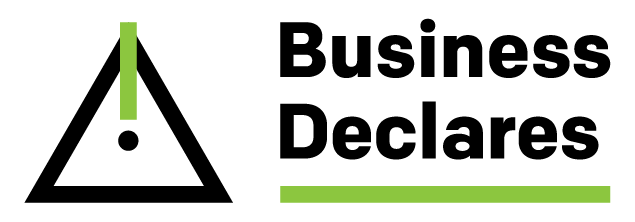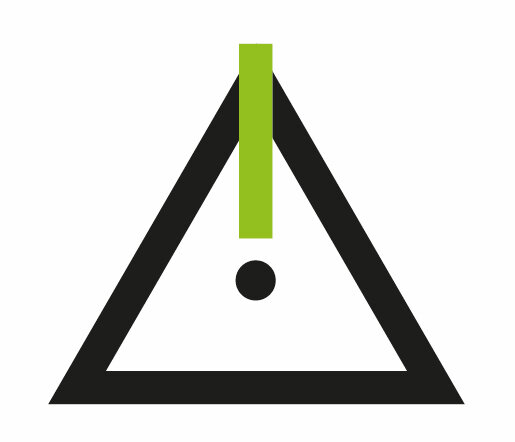members networking event 2021
This online event was hosted by Business Declares on Thursday 20th May. The purpose of
the event was to; explore what actions our members have taken since declaring a climate
and ecological emergency; understand what the key challenges are which members are
facing and listen to views on how Business Declares could support members going forward
and how members could support each other going forward. The event was faciitated by
Lucy Hawthorne and led by Samantha Cooper.
introduction
The event opened with Lucy summarising that the purpose of the meeting as described
above as well as emphasising the theme of connection and support; for members to
reacquaint with each other and with Business Declares in order to listen and learning about
actions, challenges and good practice and understand how the wider membership can
support each other going forward on their climate action journey.
Introduction Samantha Cooper
Samantha then provided further background to the event, explaining that the mission
statement of Business Declares had rapidly evolved from 2019 – moving from a focus on
raising awareness of the climate and ecological breakdown to one of the imperative for
business to act. Samantha described how Business Declares’ work was now additive to other
climate initiatives whilst also having an impact by helping businesses take authentic action.
The members then took part in a live Menti survey led by Lucy wherein they were able to
reflect on their business’ climate journey. The survey showed that most of the organisations
were now familiar with climate action and were satisfied that they were making progress in
their journey but nonetheless recognised further progress was still to be made. The
members largely felt that had clarity on their action plan to reach net zero by 2030.
survey findings summary, Ben Tolhurst.
Ben began by summarising the progresses the survey findings from the membership
community. In terms of actions that members had made since declaring, these centred on
three main categories; rising awareness; corporate approval/changes and measuring
impact. For most members, the levels of awareness of the climate issue had intensified
since declaring both internally and with clients. By speaking with clients, the conversation
around climate change moved deeper into the value chain and created the foundation for
change. Many had also reported a culture of formalising action with published targets, plans
and ethos’ of viewing business decisions through the climate lens, which built on awareness
and cemented the intention of the organisations to take the issue seriously. Finally, there
had also been a large amount of activity around mapping and measuring, with increasing
requests for carbon footprint tools as organisations attempted to get to first base with their
net zero target. This would establish a baseline to measuring future progress for the
organisation. Ben summarised that the actions so far had been indicative of early-stage
changes with some specific actions entwined.
He then moved on the biggest challenges that there had been for members since declaring,
which were; challenges with organising actions, and time, focus and clarity. Action was
made difficult due to being overwhelmed, corporate inertia, and the difficulty small
businesses faced with tracking and recording changes. The difficulty regarding time was due
to time poverty and furlough, finding time to make real changes on the ground, and it was
also highlighted that there is confusion around what ‘net zero’ did and didn’t include. Ben
highlighted that the emotion of being overwhelmed and not knowing where to start was a
common, and this can sometimes lead to paralysis in taking actions. Members recognised
that whilst the successes in terms of verbal declarations and written plans were a good step
forward, they have to be followed up by specific action or people’s plans would start to lack
credibility.
Ben noted that feedback from the members suggested Business Declares was supporting
them week in three main areas; by helping raise awareness and driving companies to
declare a climate and ecological emergency; by providing materials and tools; and giving a
space to network and ways for members to connect through Business Declares led events.
Feedback also showed that the biggest thing that Business Declares could do to support its
members better would be to help them connect with each other so that they could share
knowledge and better understand what other members are doing. Resource provision was
also brought up as something that could help, as well as providing more information about
regulatory action in general (examples include areas such as the CEE bill and Better Business
Act.)
group discussion #1
The members were then posed a question about how the survey findings resonated with
their businesses and their journeys since declaring a climate emergency. The majority of the
members confirmed that they felt overwhelmed, both with the many initiatives that were
around and that tended to overlap in their function, and with which resources to place their
confidence in. The members also reported that now they had declared and were confident
in their statements, they were now starting to take action. Clients and customers were also
said to have started putting pressure on their businesses to act. An important part of
making change was finding areas that the companies could make a valuable difference that
was relevant to their businesses. The survey brought up that a standardised approach for
reaching net zero may be helpful, as well as a way of measuring employees and operational
practices. A new way of disseminating and accessing the wealth of new data regarding
sustainability was also something that could help businesses, with the information being
divided by sectors so that there were specialised targets for different groups and the
process to getting to net zero could be made clearer.
Louisa and Seb then presented on the action they had taken since declaring and what had
been, and still was, the largest challenge that they faced in implementing their climate
emergency plan.
Louisa Ziane, Toast Ale
As one of the original signatories for Business Declares, the first action Toast Ale took was to
measure their baseline footprint, which was published in 2019 in order to document the
effect that the changes they were making. Louisa had found that the majority of her
emission were related to barley but had now made reductions by taking action and putting
in place measures which would reduce the footprint. In order to have a lower footprint as
the business grows, Toast Ale decided not to export beer or transport heavy liquid around
the world and instead work in collaboration with existed breweries to produce their beer.
The team did have to travel due to this, but due to current circumstances this had been
mostly eliminated. They had also started working with pedal-bike couriers to deliver in
London, which had the highest concentration of Toast Ale customers. Work had also been
done to increase the amount of surplus bread, which would otherwise have gone in landfill
and use this in the brewing process to reduce the amount of barley used. They were now
working with their supply chain to look at tackling Scope 3 emissions by influencing their
customer’s behaviours by getting them to recycle the aluminium cans through consumer
campaigns. Louisa had also looked at the whole team and made sure they had renewable
energy by examining their pensions, bank accounts and how to shift their behaviours in
their personal lives. Toast Ale decided not to offset residual emission but were instead
working with organisations to invest in regenerative agriculture and understanding how soil
systems worked and how to improve their health.
Seb Beloe, WHEB
WHEB are an asset management company whose investment strategy is focussed on
sustainability. Having pledged to be net zero by 2025, the main area they are focussing on
are scope 3 emissions and their supply chain. To this end, they have contacted 32 of their
largest suppliers, that represent around 90% of their spend in the supply chain and asked
them to add an addendum to their contracts which requires them to report their emission
and ideally set themselves a net zero target. Around a quarter of the conversations so far
have been with companies who had already made a commitment and were on their way to
achieve their targets, and a further 40% will be making the commitment within the next 12
months once they have measured their emissions. WHEB were also working with those who
were uninterested in climate change by figuring out a way to exert pressure to encourage
change within those groups. WHEB were currently looking into reducing their suppliers and
employees’ emissions. WHEB have provided their employees with additional days of
holiday if they travel by train rather than fly and are setting up a company car fleet which
will only be filled with battery electric vehicles.
group discussion #2
For the last group discussion, the members were asked to think of one way that Business
Declares could help them develop and implement their action plan, and one way that the
members could help each other. The members came to the overwhelming consensus that
having a forum for them to be able to communicate with other members and the Business
Declares team would be extremely helpful. By having a platform like this, they would be
able to network with each other, generate business form each other and share and gain
information about the journey to net zero. Generalised sector-based support was also
something that would be helpful for the members according to the feedback as was having
regular events which would help the members learn how to reach out to their customers,
stakeholders and bigger companies.

